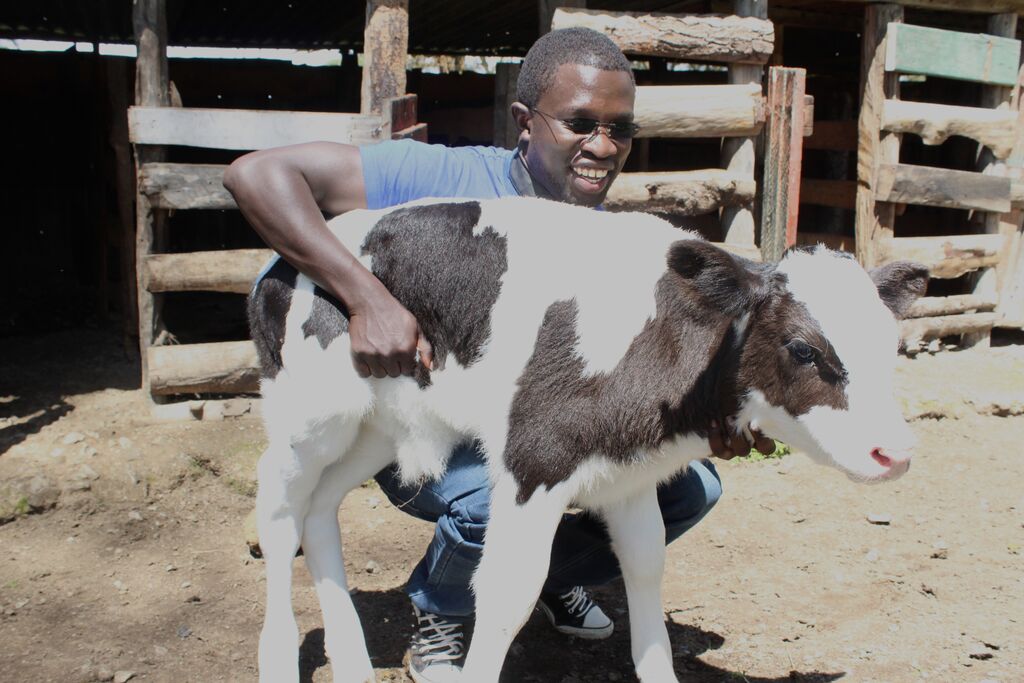The value of a cow varies across the world. To the Maasai of Kenya cattle, are everything (food, material, culture, ritual). For Hindus, they are revered and worshipped, while in rural South Sudan they are used as currency and objects of beauty.
Victor Sylvester Otieno is the 27 year-old hoping the disrupt the eCommerce sector in Kenya. Cowsoko, derived from Kiswahili word ”soko”meaning ”market”, is an online marketplace for all things dairy farming. Techpoint spent an afternoon with Victor where he shared the inspiration , challenges and aspirations for Cowsoko.
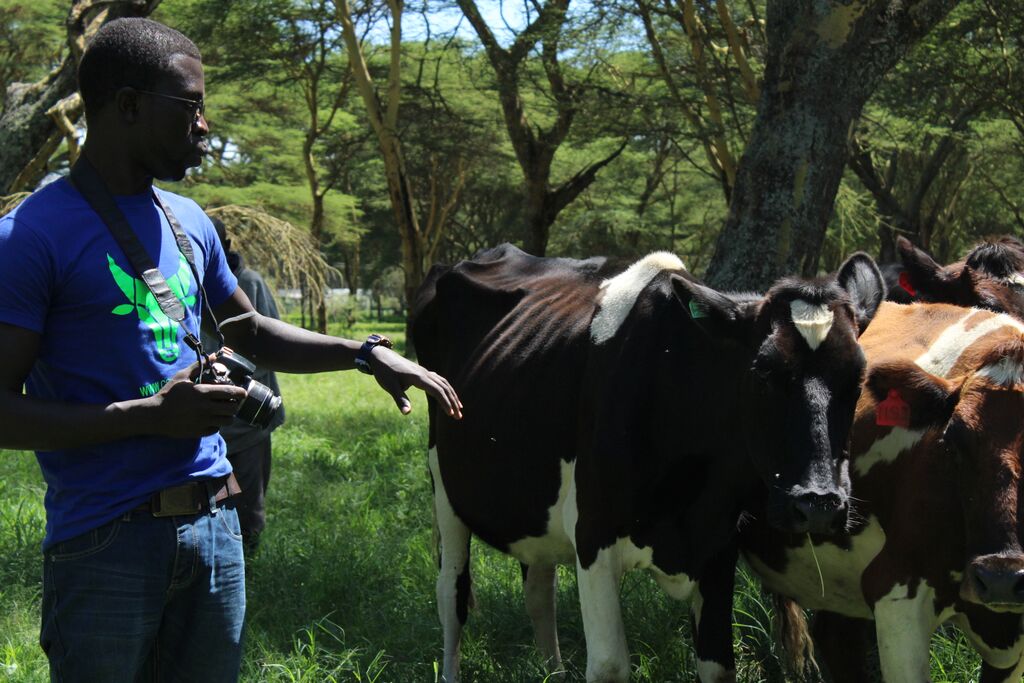
Tell us about your educational and professional background
I hold a degree in Animal Science and a Diploma in Dairy Technology from Egerton University. I have also done a couple of short courses like Four signals, which is the shortest course I have over done but it has the biggest impact on what I do today.
After completion of my degree at Egerton, SNV was running a programme on giving graduates practical experience in the dairy sector. I was in the first team for that programme, which would last 6 months, after which they would take in another group. Fortunately or unfortunately I stayed. I have also held a lot of small jobs here and there;my first job was as a painter. I started working for Laikipia Campus College soon after I gave them a proposal to start making their own yoghurt after my diploma. One of the outputs from this was that we set up a successful mini dairy processing unit. I then got bored since we were not expanding especially after the university got its charter but was not willing to invest in the processing unit. I quit and went back to Egerton for my degree.
What inspired Cowsoko? Why cows and not any other farm animals?
My diploma was basically a processing course; it starts from receiving milk to processing it into an end product that is sold at the supermarket. What happened was that each time I talked to people who supplied milk, they did not have issues with the milk, they had issues with the cows. So when I was admitted for my degree which was initially Food Science (a degree of the diploma I had done), I changed to Animal Science. I wanted to study Animal Science so as to understand and provide solutions to the farmers but I never knew it would end up as CowSoko. I really admired iCow then,it was my dream to work for them after my studies. I always knew that if you found a way of giving farmers solutions through IT, that would be what would take dairy farming to the next level.
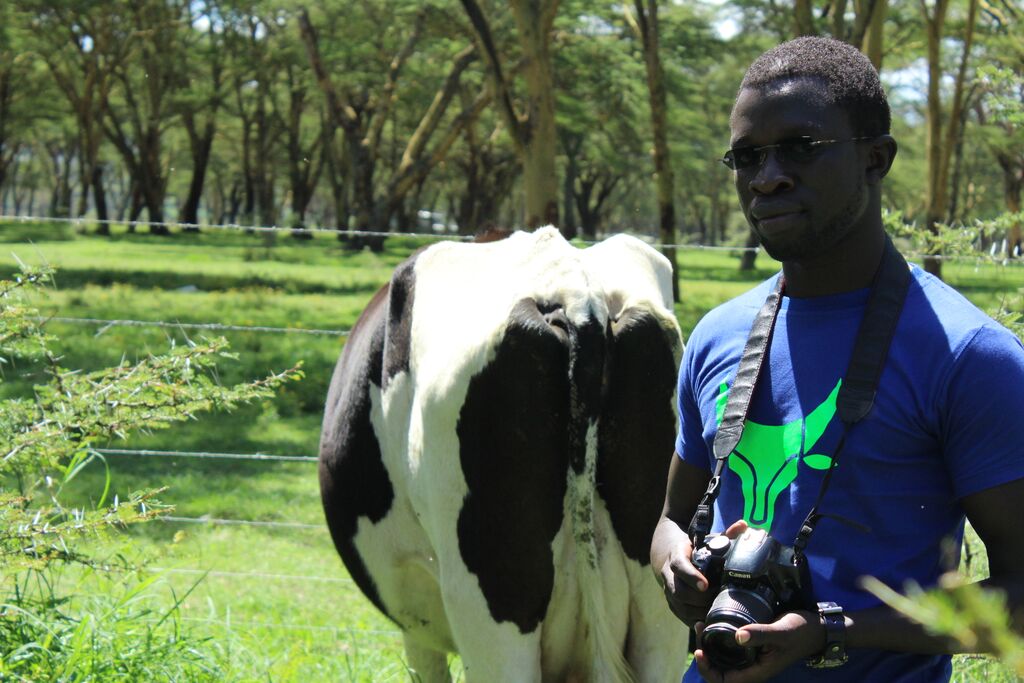
During my 4th year, I started blogging to try and recall what I was taught in class. 5 months later, I had around 50,000 hits . People started calling me to visit their farms to advise them on some things I had blogged about and I thought to myself, there could be a business here. My blog was generally about livestock , it is after I joined the SNV Dairy Farming programme that I had the idea of building a platform that would be a one stop shop all livestock farmers. Each enterprise has its own complexities so I got someone at SNV to advice me and that is how I settled on cows, more so dairy farming. I then focused by blog into a diary blog and I would always get questions on where one would get a good dairy cow; I would go to the field in the rural parts of Kenya and I would meet farmers who want to sell/buy cows. I got to a point where if someone asked me I would connect them but I realized it was not sustainable especially when I was not available. I thought of coming up with my own platform where one would get everything involved with dairy farming. CowSoko started as a site for selling and buying cows but then we would get requests to conduct medical examinations; we added something on meet an expert tab. We now had cows , experts, tours and trainings tabs added.
What is the business model for CowSoko?
We charge people to put up their cows for sale on the site, experts to put up their profiles, farmers to have a mini site for tours and trainings. For the trial period we were charging farmers 200KSH but now we will start charging them 2.5% of the price of the cow. We charge experts 200ksh per month and for farms that offer trainings or farm tours we charge an average of 1000KSH per month. We however first have to visit the farms to assess it and give the farmer curriculum that we have developed.
How many cows have you sold so far on Cowsoko?
Today we just sold our 150th cow after running for 3 months.
What is the average cost of a cow? What is the most expensive cow you have sold on CowSoko?
It varies a lot but the average of the cows we have sold would be around 80,000KSH . The most expensive cow we sold was for 250,000KSH.
Who is your target market? What are you doing in terms of marketing to reach them?
Anyone who would want to go into dairy farming, a farmer who wants to improve their product is our target. We do not just offer a marketplace for cows, it’s like a comprehensive cover including other services.
We have not done any marketing at all. Anyone who has sold or bought a product on our site just bumped into it. The much we do is if something is on our site, we share it on Facebook.
If you look at Google analytics: Dairy farming, Dairy cows, are among the most searched terms in Kenya.We have not done any SEO so you might not get to our site but if you search ‘buy a cow’ you would bump on our site.
Where do you get most of your clients from?
I get a lot of sellers from the Rift Valley Region and buyers from Central and Western regions of Kenya.
How do you curb fraudsters on your site?
When we started people were putting up their cows for sale for free. We then realized that people, for instance in Nyandarua where I worked with SNV, would put photos of free grazing cattle by the roadside. They would take photos of really nice cows grazing and would say it costs 60,000KSH. Upon making an enquiry, interested customers would be told to send a viewing fee of 1000KSH . I had that for the first 3 weeks of CowSoko Trial and that is why we introduced the fee for people to put up their cows for sale.
In the next 2 months, we are looking at introducing sale of cows by farmers who are breeders. We will sign a Memorandum Of Understanding with them and reach a valuation for their cows such that if they say a cow is 80,000KSH we know the price is justified. You can also choose to go get the cow or it can be delivered to you.
Getting married the African way most of the time requires the man to pay dowry of cattle for his wife. Do you get people buying cows for this purpose?
We get that a lot especially from Rift Valley region where most cows are dairy so they look for heifers.We have a lot of demand for cows and most of the time when we advice them to get a pregnant cow which has much more value they would say it is just to pay dowry.
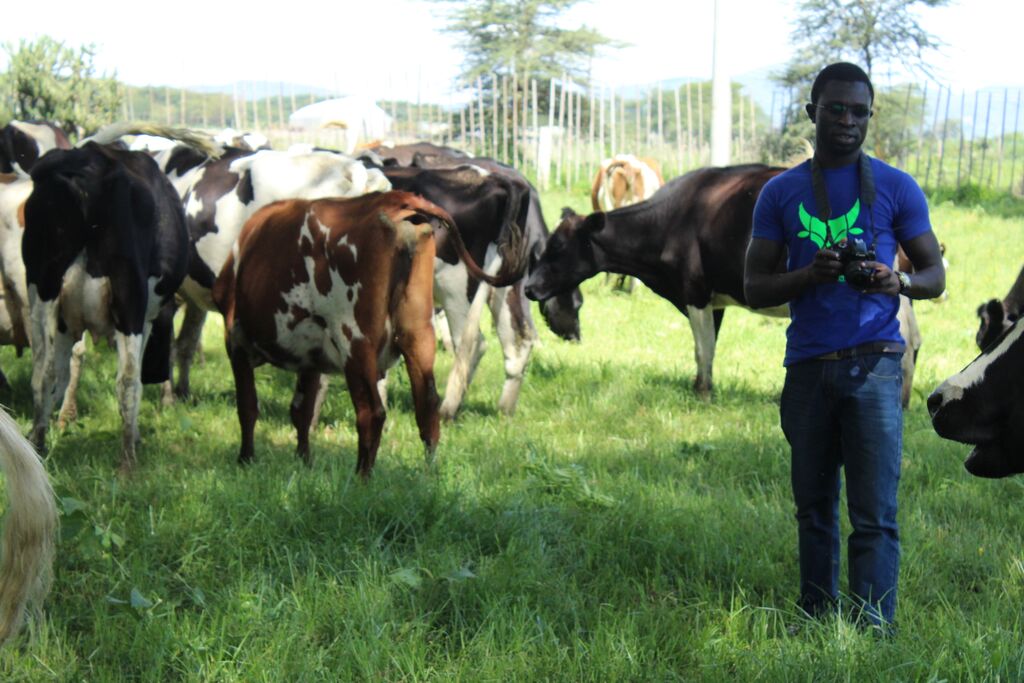
Do you plan for expand to other farm animals?
Definitely! Dairy farming is the most complicated of livestock farming. By the first quarter of next year , we will have expanded to other animals. In Kenya, the dairy farmer is also the poultry farmer, pig farmer so now that we have captured one farmer expanding will be pretty easy.
What challenges have you had running Cowsoko?
First challenge is that we have more requests than the platform can handle so sometimes we have to go offline. One also needs a lot of finance to run. In Kenya it is quite difficult to get this. I have to work for SNV as an independent consultant and from my salary I get money to run the site as I have a limited budget. I have orders of up to 100 cows right now that I cannot deliver as I do not have the staff setup.
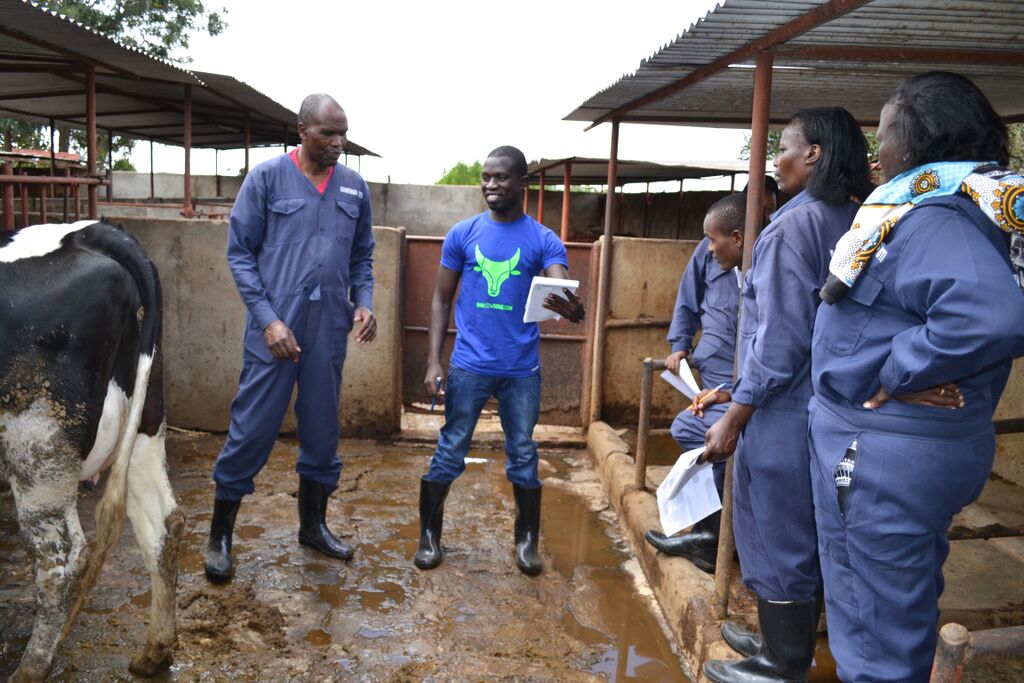
How did you get your initial source of funding? Are you profitable now?
When I had the idea for Cowsoko, I went to look for available funds through the Youth Fund as Uwezo Fund was not out then. I did not qualify for the amount I was looking for (200,000KSH ) so I was advised to apply for 50,000KSH-100,000KSH which I would waste if I got. I then went to several banks with my business plan and the title deed of land that my late father left for me but I was unsuccessful. I always thought that if you had a title deed you would get a loan. People would look at me as an excited young man and would advice me to finish my studies, get a job with the government, take my pay slip then they would give me a loan. I remember when I went to one of the local banks and the loans officer told me that banks are not in the business of keeping title deeds. From then I knew there was no financing for me that is why I had to look for a job. Around 60% of my income funded Cowsoko.
At the moment ,I would not say we are profitable but the money I now use to improve Cowsoko comes from what people have paid. Sometimes I put in my money but 80% of Cowsoko now finances itself.
Have you looked for investment before?
Yes I have. Funny thing is that everyone wants to buy me out. Everytime I tell people to put in a bit of money, people want to buy me out. I get very good deal at times but if I take that deal, the product will be lost. CowSoko runs on the fact that I understand livestock farming, not that we have a good website. I had about 14 offers, as of yesterday, from people who want to buy me out. Some of these people are some loan officers from some banks who want to cut deals for themselves without involving the bank. 70 % are Kenyan investors while 30 % are not.
What character traits do you think an entrepreneur should have to compete in this market?
If you are young, people will write you off. You must have a thick skin as the people with the money in Kenya are the older generation.
You have to be the person who does whatever it takes to prove that your idea is a solution to a problem that currently exists. In Kenya people do not care about entrepreneurs. It is easier to start an MPESA shop than to come up with a new idea. Kenyans would rather invest in land but not a new idea.
Do not rely on the idea that someone will give you money to start up your idea, whether a bank, venture capitalists or even Youth Fund- It is there but inaccessible. When you finish your degree you already have loans with the higher education loans board so you cannot go taking up other loans. You have to be creative on how to finance your startup. People will start giving you money when they see the product and there is a lot of work that goes on between the idea and product.

Do you have expansion plans to other countries and regions?
Definitely! Cowsoko is a solution for small holder systems. I understand what goes on in industrial farms like in Israel where they would still need experts but as employees. Cowsoko’s model is for everyone who would want to go into small holder dairy farming. Kenya just happens to be the region where it starts.
What will define success for Cowsoko over the next year?
Having everyone interested in dairy farming will be coming to our site.

